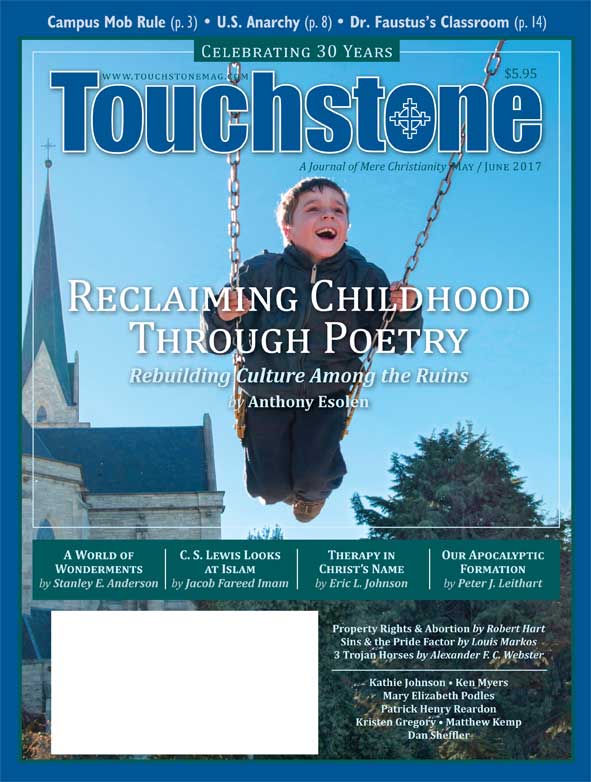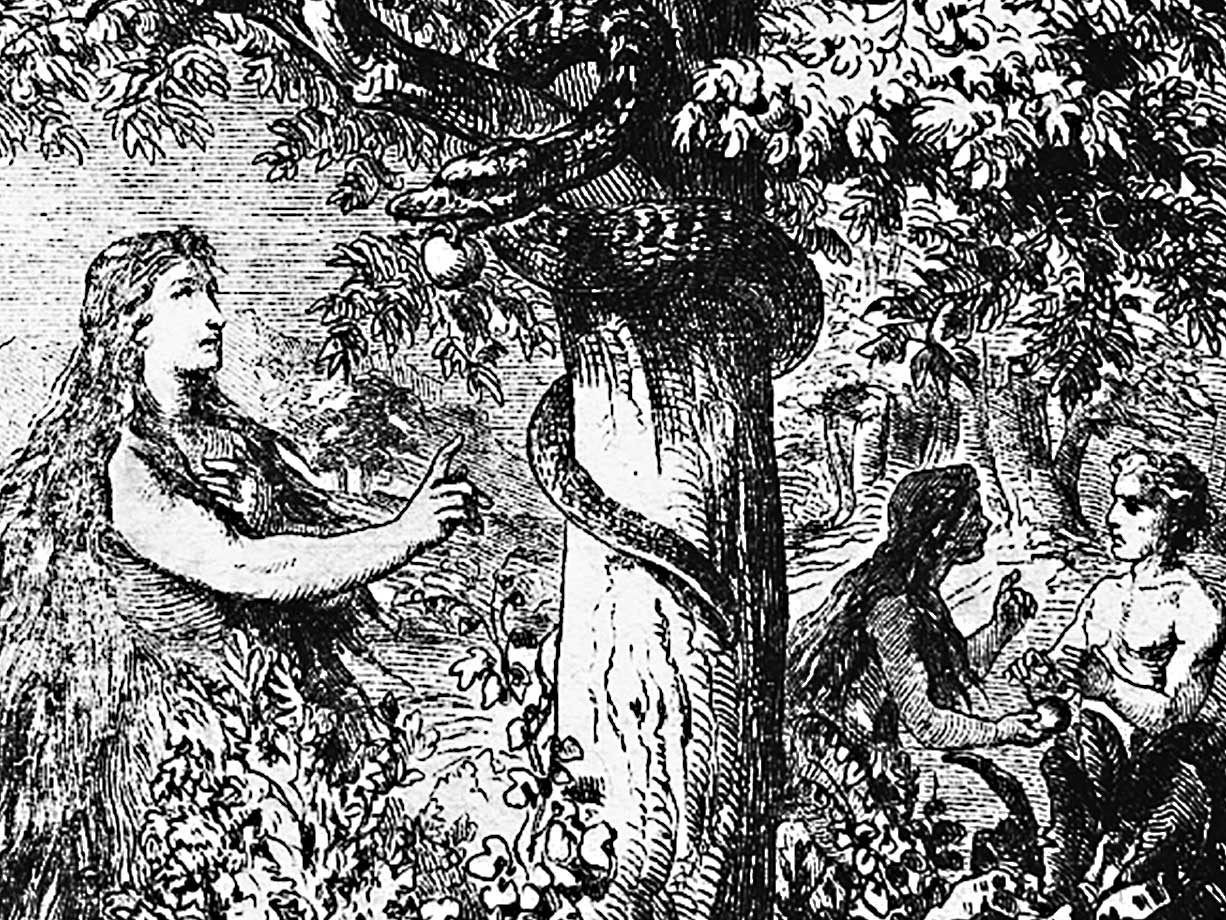Book Review
Domestic Mystique
Eve in Exile and the Restoration of Femininity
by Rebekah Merkle
Canon Press, 2016
(205 pages, $16.00, paperback)
reviewed by Kristen Gregory
Eve in Exile begins with a well-researched primer on 200 years of the feminist movement and its outcomes. Full of useful analogies, this book has enough sass to keep it light-hearted, and lots of vision about building the culture of the home and bringing dignity instead of disgrace to the vocations of wife and mother.
Merkle starts by asking how we got where we are—not to criticize our grandmothers but to point our daughters in the right direction. She highlights proto-feminism (Mary Wollstonecraft and her daughter Mary Shelley), first-wave feminism (Elizabeth Cady Stanton, Susan B. Anthony, and Margaret Sanger) and second-wave feminism (more Margaret Sanger[!], Gloria Steinem, and Betty Friedan).
Merkle agrees with Friedan, author of the epochal The Feminine Mystique, that women of the mid-twentieth century felt empty and unimportant. Friedan insisted that women should shake off the shackles of home and family and do something truly important. But Merkle recognizes that women leaving the home en masse not only failed to fix the problem but exacerbated it; moreover, it ignored the real problem, which was that the combination of postwar prosperity, an explosion in technology, and the development of birth control (though she could have stated the latter more clearly) in the 1950s left women "dispossessed" of their calling.
Of course they felt aimless. Half a century earlier, being a homemaker had been all about survival: middle-class women had had to work and plan like crazy to feed and clothe their families. Now suddenly there were labor-saving appliances and mass-produced goods, which gave them the blessing of free time, but they squandered that time rather than doing something grand with it.
Merkle asserts that the home is a place of boundless creativity. Home is the place where women translate the goodness of God into the culture of our family. How can that possibly be unfulfilling? They are shaping eternal souls. How can that possibly be a small task? "Rather than seeing Titus 2 as evidence of Paul's low view of women, perhaps we should see it as evidence of Paul's high view of the home," she writes.
So, "What are women designed for?" To subdue the earth alongside our Adam, to fill it with godly offspring, to help our particular husband in his needs, and to be the glory of our husband (here she tackles the topic of submission in a winsome way: "If men are the beer, women are the whiskey").
This isn't a bun-and-jumper-the-good-old-days-were-better book. Merkle even agrees with the feminists on some points, which gives the reader common ground in talking with feminists. She refuses to romanticize an era just because it is in the past. And she does not give laws for whether a woman can work outside the home. Rather, "I would never say a woman's place is in the home, but I would absolutely say that a wife's priority should be her home" (136).
In my favorite paragraph, she tackles everything from whether women ought to teach to home décor:
It's not that men are supposed to be involved in teaching theology and women aren't—it's that men are to teach it one way and women are to teach it another. . . . Our job as women . . . is to enflesh the weighty truths of our faith. If our role is to make truth taste, to make holiness beautiful, then what does that look like in the details? As a random example of this, take Christmas. . . . The men can talk about the Incarnation, church fathers can write important treatises about it, pastors can preach about it, theologians can parse and define it . . . but we women are the ones who make it taste like something. We make it smell good. . . . And for my next trick, I will take Athanasius' De Incarnatione and I will say it with cookies and wrapping paper and cinnamon and marshmallows and colored lights and tablecloths . . . and I will do it in such a way that my four-year-old will really get it, and it will send roots deep down into his soul where it will anchor his loves and his loyalties and shape his allegiances well into his nineties. (175–176)
subscription options
Order
Print/Online Subscription

Get six issues (one year) of Touchstone PLUS full online access including pdf downloads for only $39.95. That's only $3.34 per month!
Order
Online Only
Subscription

Get a one-year full-access subscription to the Touchstone online archives for only $19.95. That's only $1.66 per month!
bulk subscriptions
Order Touchstone subscriptions in bulk and save $10 per sub! Each subscription includes 6 issues of Touchstone plus full online access to touchstonemag.com—including archives, videos, and pdf downloads of recent issues for only $29.95 each! Great for churches or study groups.
Transactions will be processed on a secure server.
more on feminism from the online archives
more from the online archives
calling all readers
Please Donate
"There are magazines worth reading but few worth saving . . . Touchstone is just such a magazine."
—Alice von Hildebrand
"Here we do not concede one square millimeter of territory to falsehood, folly, contemporary sentimentality, or fashion. We speak the truth, and let God be our judge. . . . Touchstone is the one committedly Christian conservative journal."
—Anthony Esolen, Touchstone senior editor













